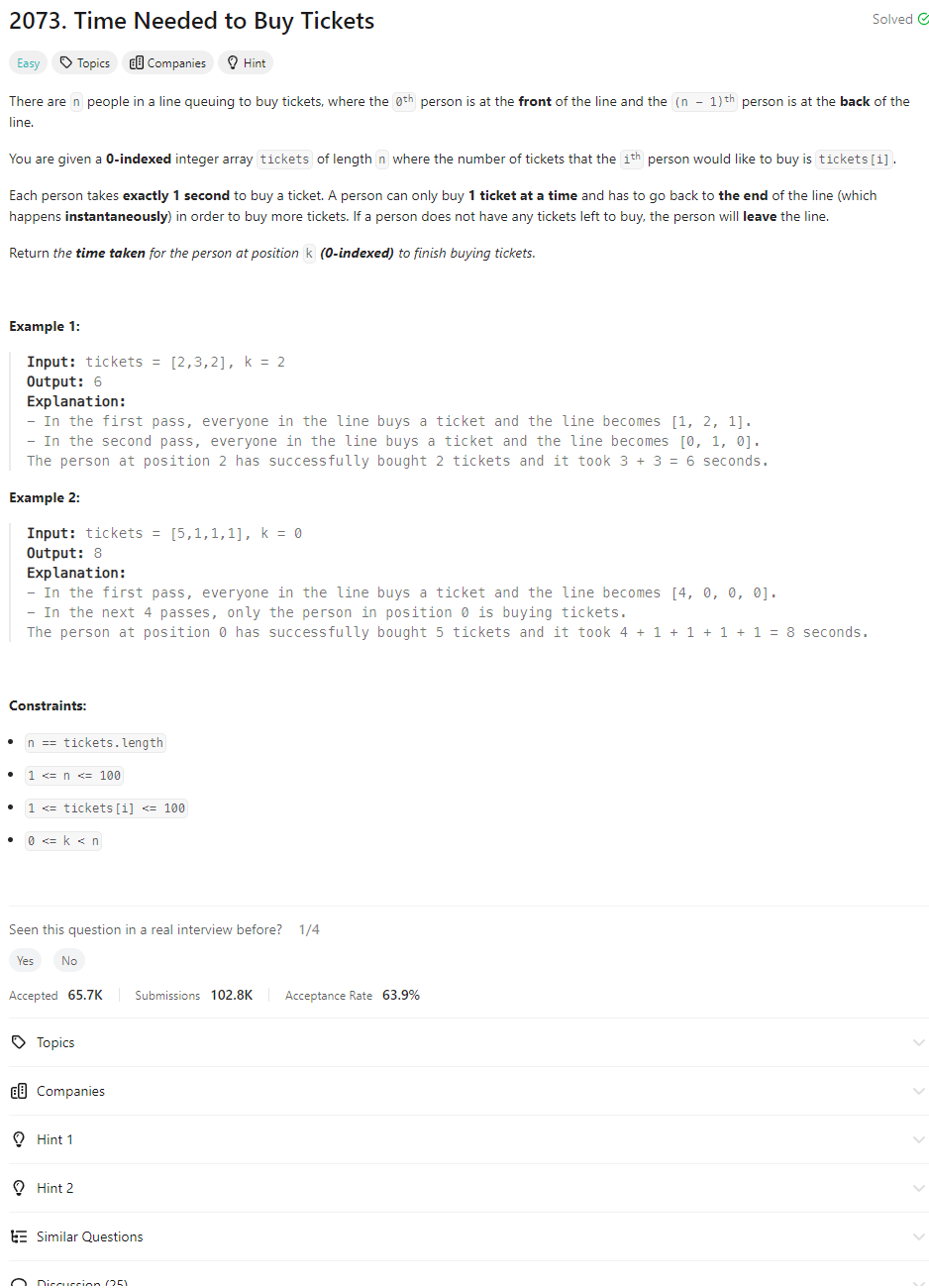Problem of The Day: Time Needed to Buy Tickets
Problem Statement

Intuition
I have to calculate the time required for me to buy all the tickets at a ticket counter. I’ll be joining a queue, and each time I step forward, I’ll buy one ticket. I need to handle a special case where I’m at position k in the queue and buy my tickets first.
Approach
I’ll create a queue using a deque and iterate through the tickets, adding each person’s index and the number of tickets they want to buy to the queue. Then, I’ll simulate the process of buying tickets by popping elements from the queue, decrementing the number of tickets they want to buy, and if the person is at position k and has bought all their tickets, I’ll return the current time. Otherwise, I’ll continue until all tickets are bought.
Complexity
-
Time complexity: O(n * m) where n is the total number of tickets and m is the maximum number of tickets at each index.
-
Space complexity: O(n) as we use deque to store the queue of people and their tickets
Code
class Solution:
def timeRequiredToBuy(self, tickets: List[int], k: int) -> int:
time = 0
queue = deque()
for i, ticket in enumerate(tickets):
queue.append([i, ticket])
while queue:
person, tickets = queue.popleft()
time += 1
tickets -= 1
if person == k and tickets == 0:
return time
if tickets > 0:
queue.append([person, tickets])
Editorial Solution
Approach 2: Simulation Without Queue
class Solution:
def timeRequiredToBuy(self, tickets: List[int], k: int) -> int:
n = len(tickets)
time = 0
# If person k only needs one ticket, return the time to buy it
if tickets[k] == 1:
return k + 1
# Continue buying tickets until person k buys all their tickets
while tickets[k] > 0:
for i in range(n):
# Buy a ticket at index 'i' if available
if tickets[i] != 0:
tickets[i] -= 1
time += 1
# If person k bought all their tickets, return the time
if tickets[k] == 0:
return time
return time
- Time complexity: O(n * m)
- Space complexity: O(1)